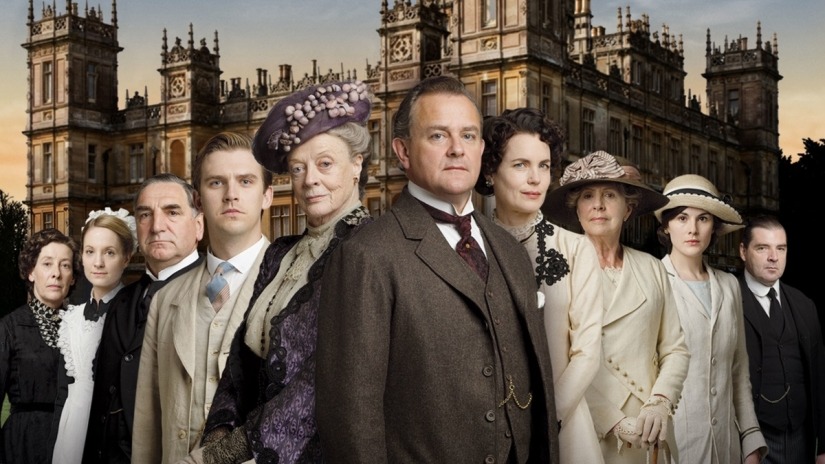The UK, nationalism and multiculturalism
Lesson 1
Abstract : Reflexion upon the notion of nation. A Nation is an imagined community, a cultural artefact, a social construct (Benedict Anderson Imagined Community).
History
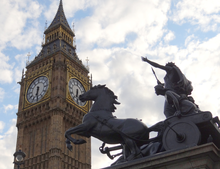
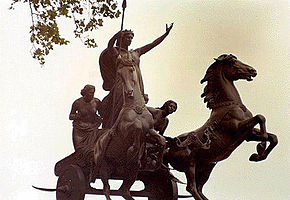
(Boudica or Boadicea was a queen of the British Celtic Iceni tribe who led an uprising against the occupying forces of the Roman Empire in AD 60 or 61. She died shortly after its failure and was said to have poisoned herself. She is considered a British folk hero)
questions : why was it made in the 19th century? Why was it set n front of Westminter? Elaborate on Westminster and its architecture. Is it in compliance with its time of construction? To what extent does it contribute to presenting the notion of nation as a cultural artefact/social construct?
The end of Roman rule in Britain facilitated the Anglo-Saxon settlement of Britain. The Anglo-Saxons, a collection of various Germanic peoples, established several kingdoms. They introduced the Old English language, which largely displaced the previous British language.
Questions : The role of language in the making of a nation?
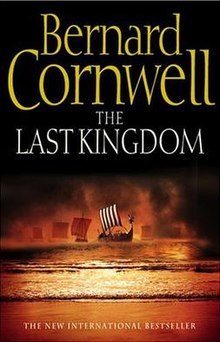
The Last Kingdom as a successful series
In 1066, a Norman expedition invaded and conquered England. The Norman dynasty established by William the Conqueror ruled England for over half a century. this was a period in which the language was influenced by French.
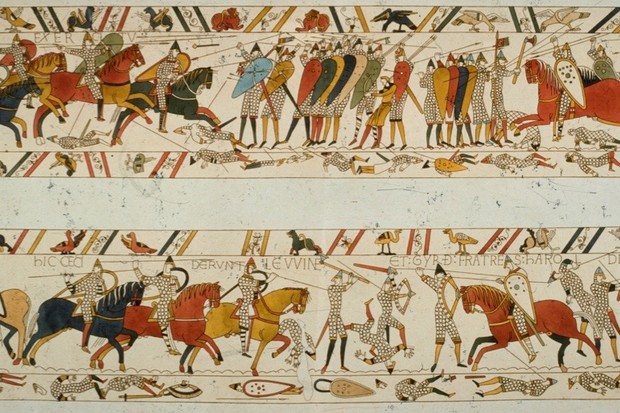
Questions: What is the role of fiction in the construction of a national identity?
A succession crisis in France led to the Hundred Years' War (1337-1453), a series of conflicts involving the peoples of both nations. Following the Hundred Years' Wars, England became embroiled in its own succession wars. The War of the Roses pitted two branches of the House of Plantagenet against one another, the House of York and the House of Lancaster. The Lancastrian Henry Tudor ended the War of the Roses and established the Tudor dynasty in 1485

questions: The importance of the Tudor dynasty? The rose as an English symbol?
The Acts of Union between the Kingdom of England and the Kingdom of Scotland were Parliamentary Acts passed by both parliaments in 1707, which joined the Kingdom of England and the Kingdom of Scotland into a single Kingdom of Great Britain.
The Act of Union of 1800 formally assimilated Ireland within the British political process and created a new state called the United Kingdom of Great Britain and Ireland. The English capital of London was adopted as the capital of the Union.
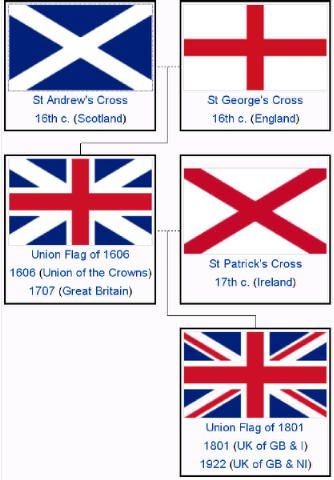
The
British National Anthem in its present form dates back to the
eighteenth century.
questions: the role of a national flag and a national anthem?
Europe, devolution and Brexit
The UK acceeded to the European Communities (EC) in 1973, with continued membership endorsed by 67% in a 1975 referendum.
The United Kingdom, devolved government was created following simple majority referenda in Wales and Scotland in September 1997 and in London in May 1998. Between 1998 and 1999, the Scottish Parliament, National Assembly for Wales, Northern Ireland Assembly and London Assembly were established by law. Devolution differs from federalism in that the devolved powers of the subnational authority ultimately reside in central government.
Following a referendum held in the UK on 23 June 2016 in which 51.9 percent of those voting supported leaving the EU, the UK government invoked Article 50 of the Treaty on European Union, starting a two-year process which was due to conclude with the UK withdrawing on 29 March 2019. That deadline has since been extended twice and is currently 31 October 2019.
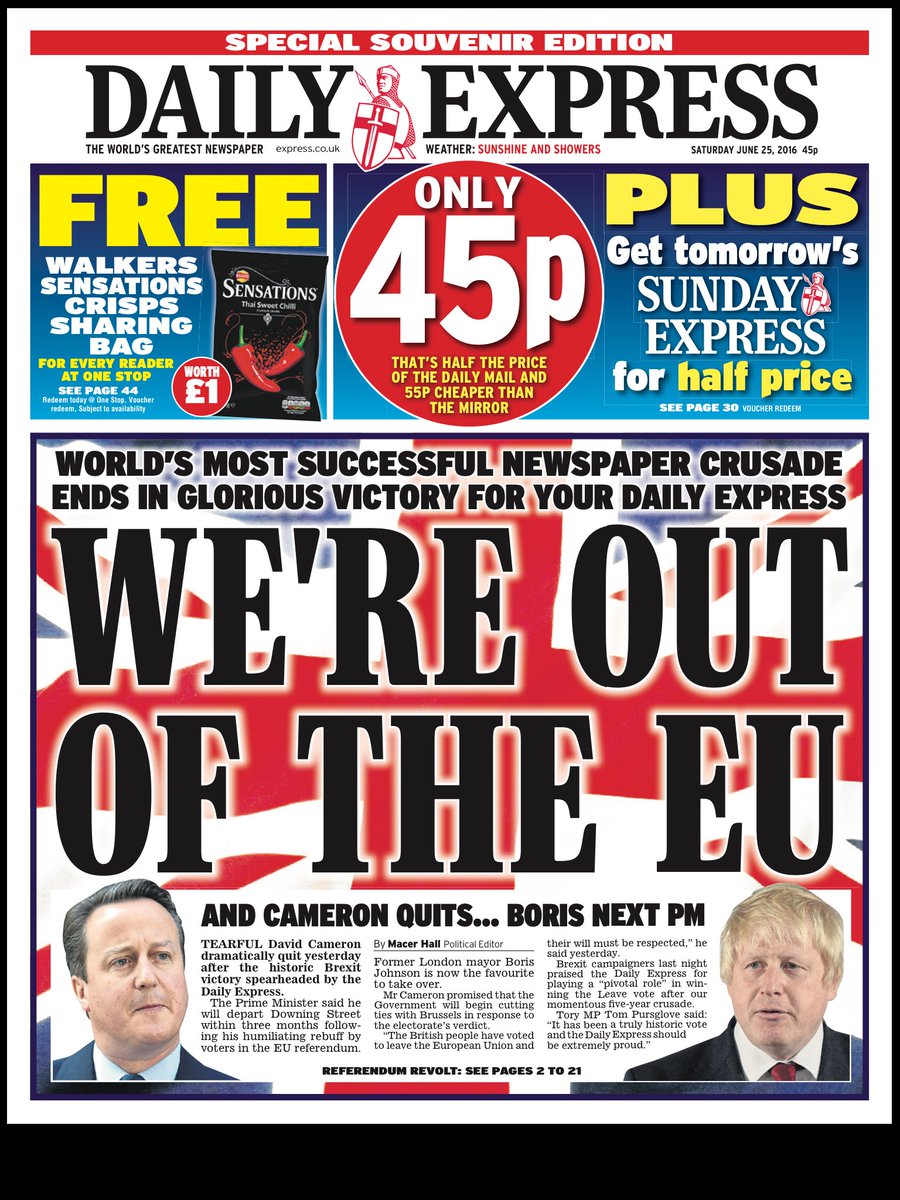
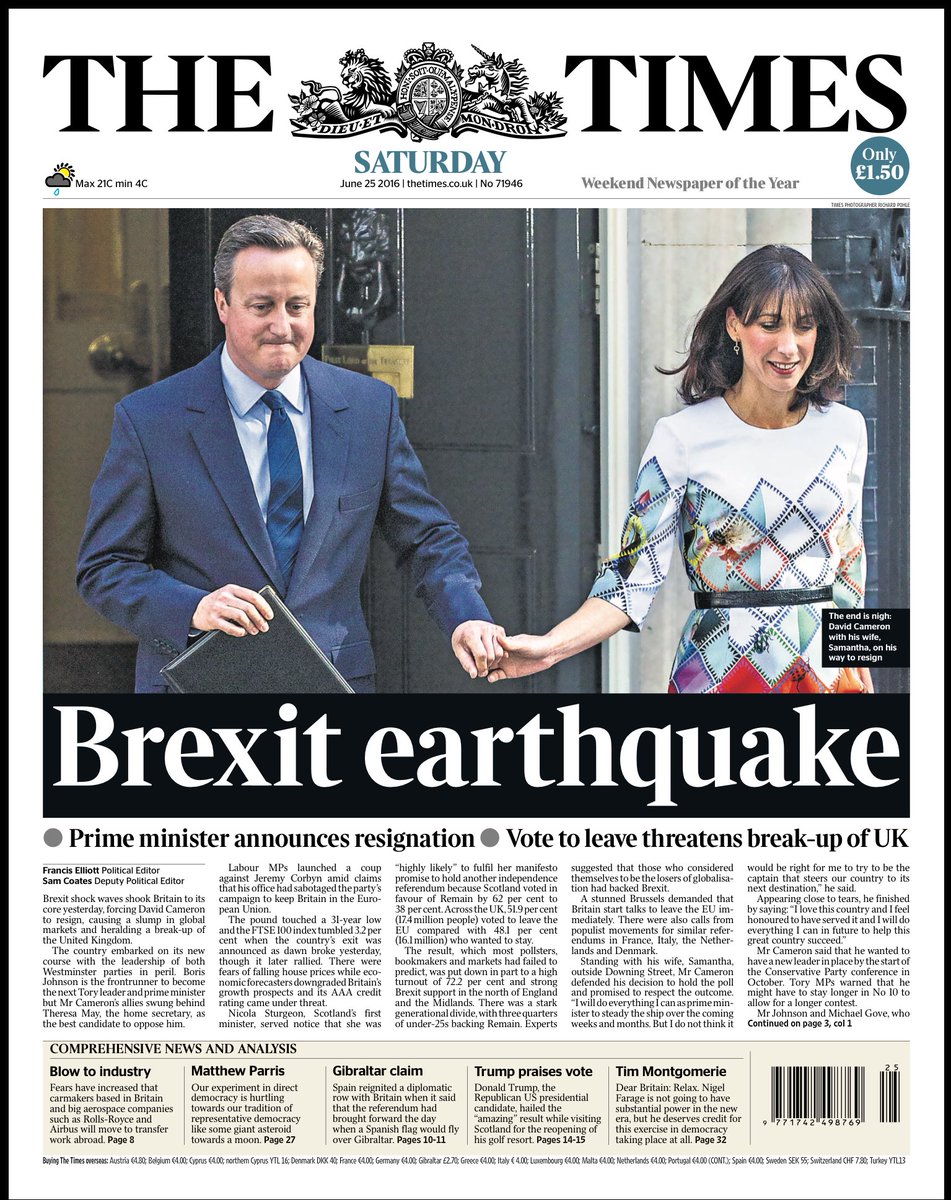
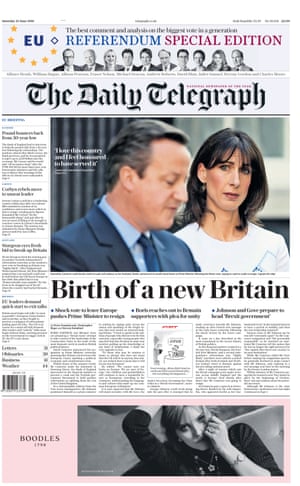
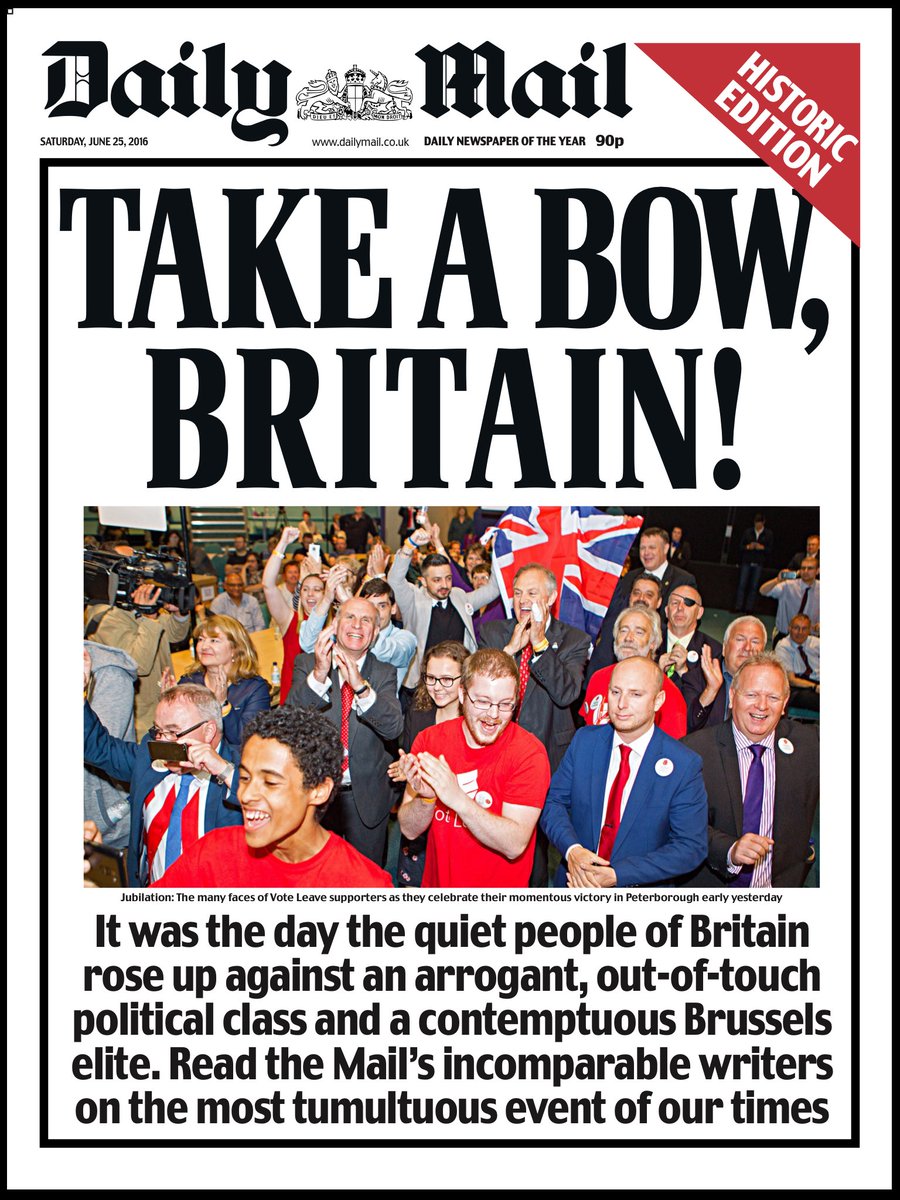
questions: Analysis of the front pages. Any difference between the press? Any visible split? What is the importance of nationalism in these decisions?
Lesson 2
Abstract : presentation of the tension between Britishness and multiculturalism.
Modern Britain is multicultural. Since the Second World War the United Kingdom has seen an influx of immigration that has radically altered its nature. The population has changed from one that was overwhelmingly white, ethnically British and Christian, to one constituted by creeds, cultures and communities drawn from all over the globe.
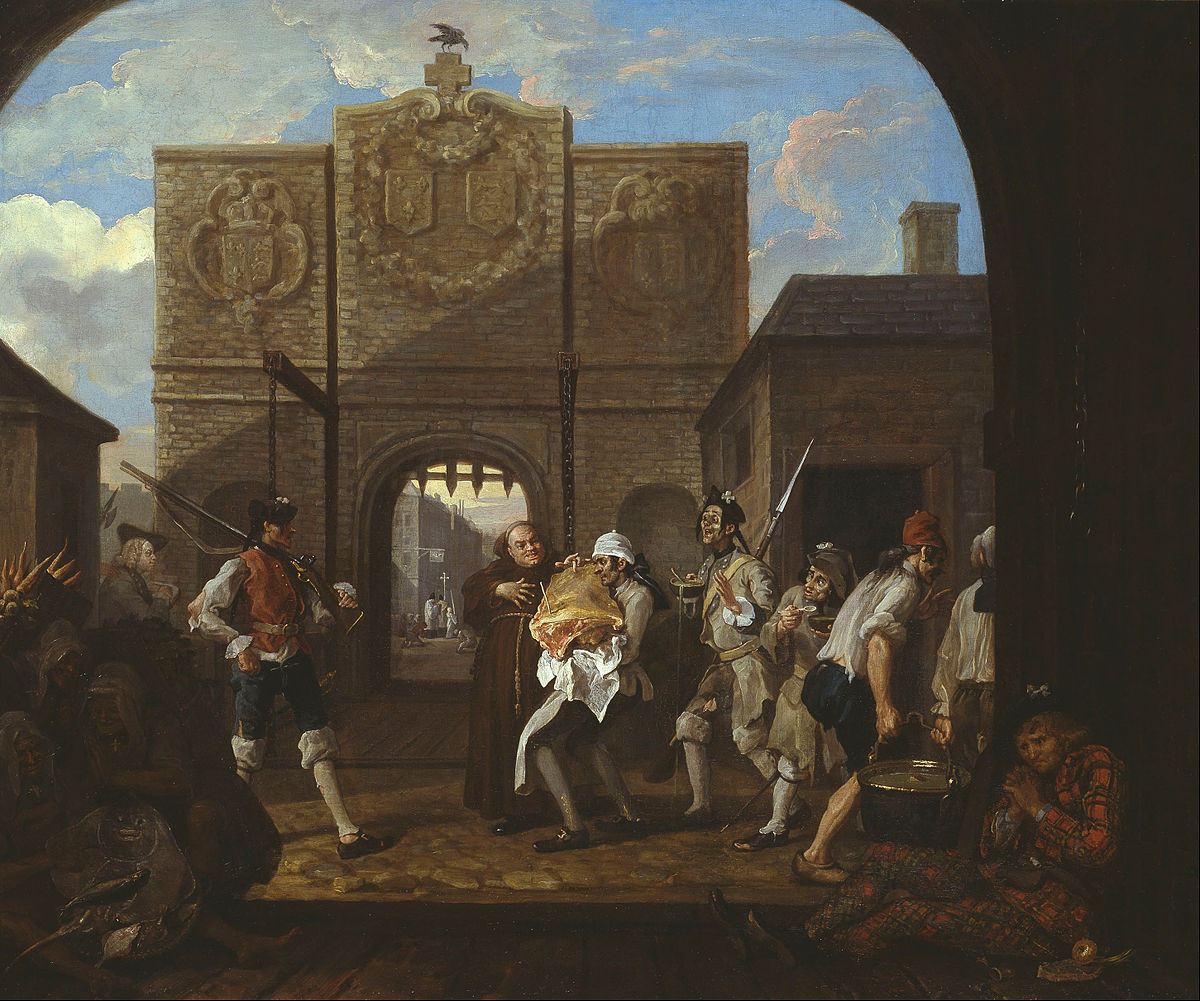
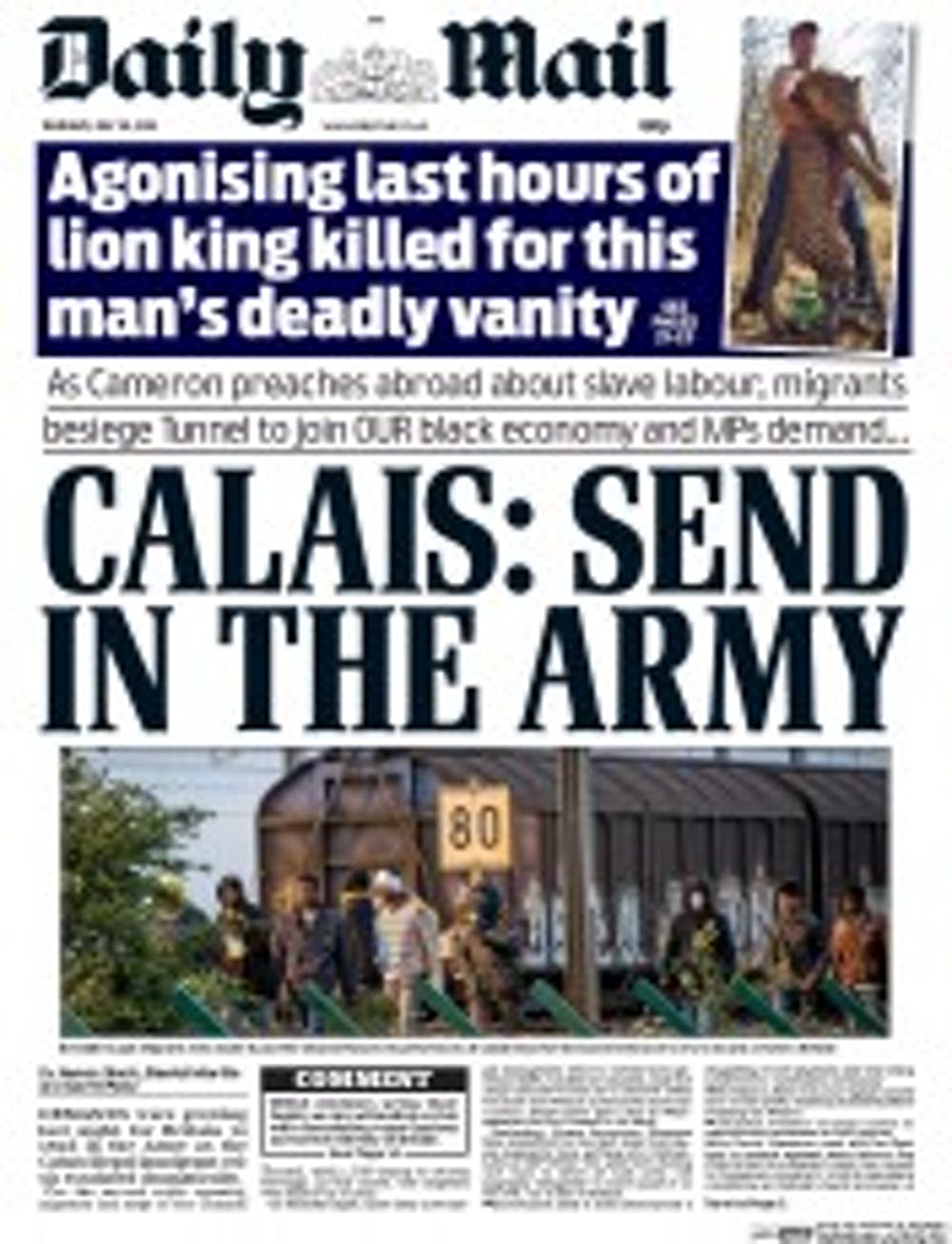
What we think of as modern British multiculturalism arose with the influx of non-white migrants in the years following the Second World War. A distinctive understanding of Britishness was first forged during the struggle against France and the subsequent period of colonisation, which indelibly linked the very idea of Britain to its imperial role. Decolonisation therefore posed a direct threat to Britain's understanding of itself and its place in the world, and it was the political response to this dilemma that created modern multicultural Britain.
Questions : The composition of British society? Hogarth and Britishness? the role of colonisation and decolonisation in the making of britishness? The role of the media? The tone?
Facing
the prospect of decolonisation, the Attlee Government tried to
preserve British identity and influence through legislation aimed at
securing Britain's position at the head of a renewed Commonwealth
sphere of influence.The British Nationality Act 1948
('BNA 1948') granted a majority of individuals in the Empire
and Commonwealth the right to immigrate to the UK. It also created a
new form of British citizenship conferred on almost everyone who was
not a citizen of an independent country These reforms were intended
to be a primarily symbolic way of reasserting Britain's status as
the 'mother-country'.
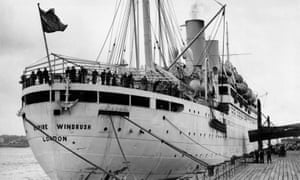
Instead
they led to an unexpected amount of non-white immigration, triggering
public and political resistance to its scale and nature, including
race riots in 1958.
questions : the attitude to immigration?
Nevertheless, commitments in both major parties to the Commonwealth vision, anti-racism and a citizenship enriched by the welfare state, combined to ensure that there was no significant immigration restriction until 1962. The expansive definition of citizenship created by the BNA 1948 could not, however, be used as the sole criterion for limiting immigration. Therefore the new immigration restrictions grafted onto the existing regime had to be recast to operate on proxies of birth and ancestry rather than citizenship, which in effect meant race
The cumulative effect of legislation in 1962, 1968 and 1971 was thus to limit non-white immigration from the New Commonwealth whilst simultaneously leaving the door ajar for white 'British' immigrants from the Old Commonwealt.
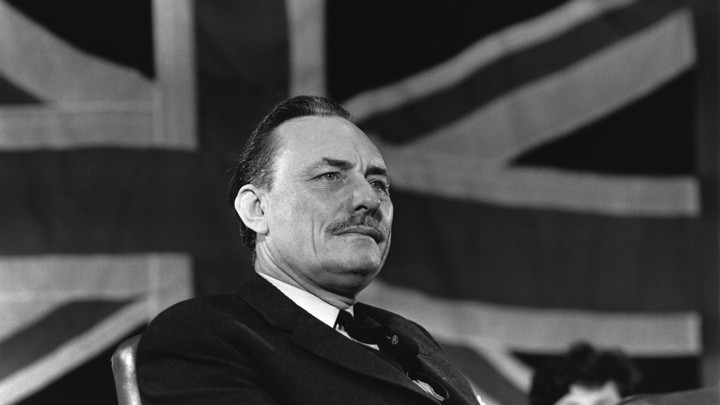
Questions: Who is Enoch Powell? What is his speech? What is Powellism? Account for the rise of Enoch Powell?
The
public and press reaction to this report was overwhelmingly negative
and, along with 9/11 and race riots in the north of England in 2001,
this triggered a re-evaluation of multicultural policy. New
Labour then began to emphasise the need for immigrant and minority
communities to assimilate British values and traditions. They
introduced a new nationality test, tightened immigration and asylum
law, and introduced draconian anti-terrorism legislation. The
security measures were linked explicitly to assimilative policies
that problematically muddled together counterterrorism work with
community relations, particularly in relation to Muslim groups.
Policies and rhetoric in this vein were continued by the Cameron
governments, with the then Prime Minister famously declaring that the
'state doctrine of multiculturalism' had failed, explicitly
citing it as a cause of domestic terrorism, and calling for a
'muscular liberalism' in response.
Questions : What's Cameron's point? Why is multiculturalism in a crisis?
it
is clear that public discourse regarding multiculturalism has taken a
more nativist turn, even if rhetoric has - so far - moved further
than practice. It is also undeniable that substantive policy changes
in recent years have chipped away at some aspects of the distinctive
British multicultural regime.
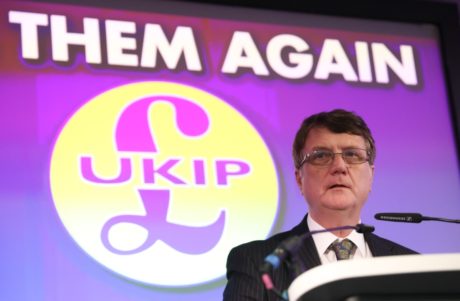
Questions : Present the UKIP and its political rise. Account for the use of "them". Elaborate on the logo.
It seems likely that these overall
trends in the public discourse, policy and law relating to
multiculturalism will be reinforced by the Brexit vote. Fears
over the perceived threat of immigration to aspects of British
national identity seem to have reinforced public resistance against the idea of multuculturalism.

Questions : Elaborate on the importance of sources. Which rhetoric is used?
Daniel Defoe and The True Born Englishman
Questions : Similarity between Defoe/The True Born Englishman and Hogarth/The Gate of Calais? Which perspective is brought here?
Importance de la contextualisation dans l'introduction :
On peaufinera cette première mise en perspective par une contextualisation plus "événementielle" qui permettra de resituer l'article dans son actualité immédiate.
When he published The True-Born Englishman in 1701 Daniel Defoe reacted against the xenophobic attacks the then King of England William, who was Dutch-born was victim of. With such a satirical poem, the novelist's purpose was to ridicule the notion of English racial purity.
Cibler le sujet et les enjeux
Un
compte rendu d'article doit cibler avec clarté le(s) sujet(s) et les
enjeux du texte. On doit chercher à définir ces enjeux en distinguant
le thème ("la crise des réfugiés " par exemple)
de la problématique ("dans quelle mesure les mots utilisés conditionnent
la perception de cette crise dans l'opinion"). Il conviendra de
préciser les axes autour desquels l'argumentation s'articule
This
poet's line of arguments hinges round 2 axes : Not only did Defoe set his point within a historical perspective to empower his criticism but he would also turn this criticism into a satire as an act of persuasion.
Lesson 3 : Importance of nostagia in politics
Abstract : Analysis of a dossier.
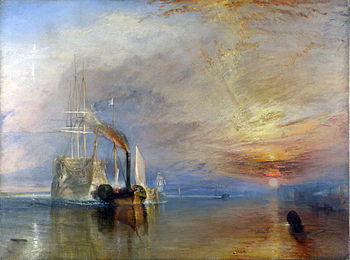
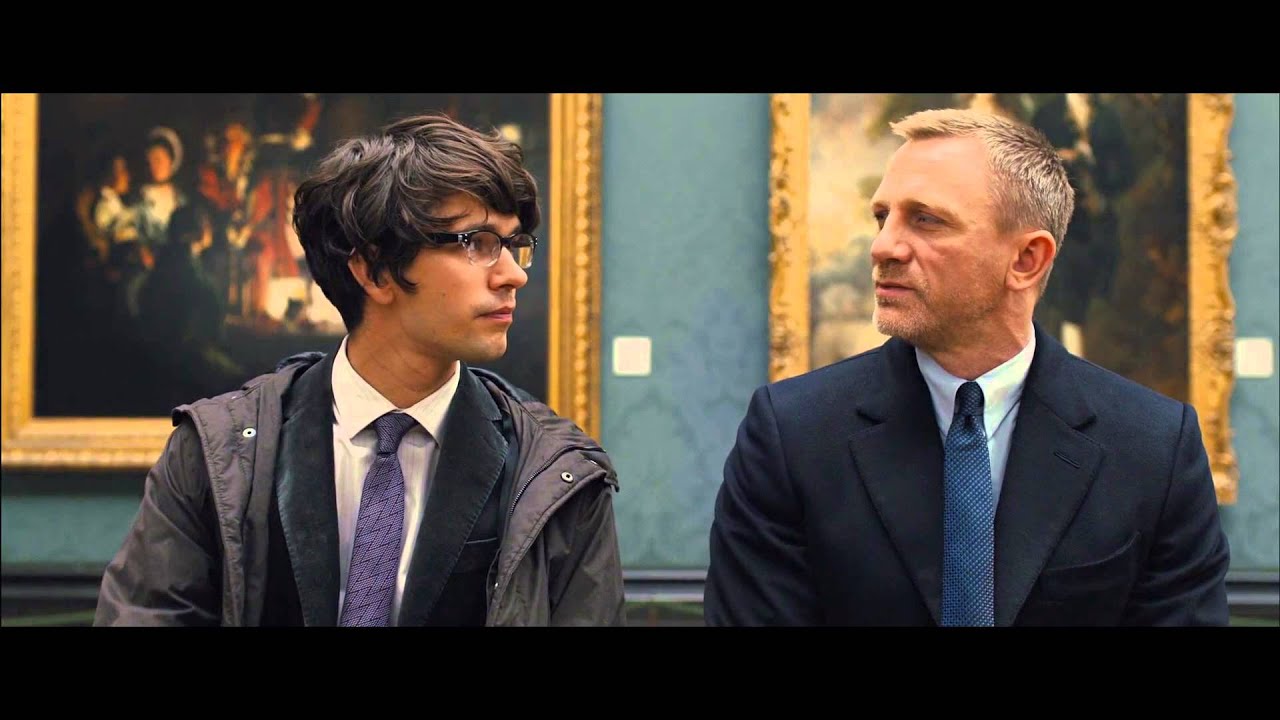
Questions : what are the points of convergence? How is nostalgia tackled? The connection museum/nation?

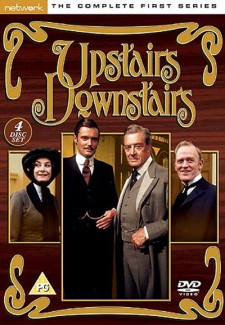
Upstairs, Downtairs, 1971-1978
Father and Daughter in Downton Abbey
Questions : movement? Topic? accent? tradition? What could account for the success of such series in the 1970s and 2010s? Which issues are raised? the outcome in the British society?
Lesson 5
Abstract : Putting documents into perspective.
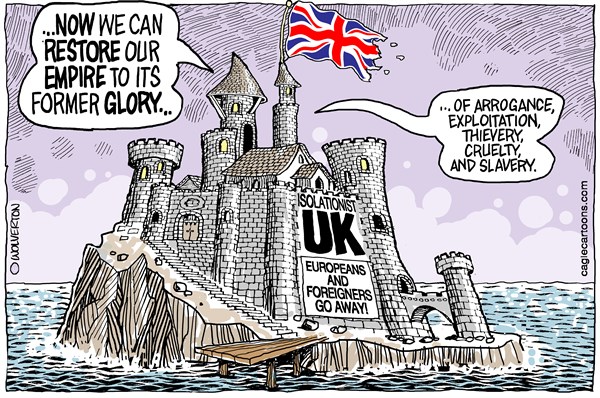
Monte Wolverton (1948, Vancouver, Washington) is an American editorial cartoonist who is best known for his satiric pages in Mad, his Weekly Wolvertoon website and his contributions as associate editor of The Plain Truth.
Task : Present the document (following the recommendation of ENS)
Introduction :
It goes without saying that the notion of unity is of paramount importance within the United Kingdom. It was notably set thanks to the Acts of Union in 1707, joining the kingdom of England and the kingdom of Scotland into a single kingdom of Great Britain, and the Acts of Union in 1801 which assimilated Ireland within the United Kingdom of Great Britain and Ireland. In 1973, the UK acceeded to the European Countries with continued membership endorsed by a large majority in a 1975 referendum. And yet, in June 2016, the same country voted in favour of the Brexit,to leave the EU.
To what extent does this vote run counter to the course of history ?
Such an issue is being tackled in this cartoon drawn by an American cartoonist as a satirical answer to that vote. In this cartoon, Monte Wolverton aims at ridiculing such a decision presenting it as a historical regression.
Not only does he rail against the isolationist attitude of the British but he also denounces the dangers of such solipsism.
Compte rendu :
isolationist attitude
dangers of such solipsism
Transition
Wolverton resorts to satire to denounce Brexit. As a foreigner, he regards it as a blatant historical regression, but we may wonder whether all this may be in the continuation of a movement started with decolonisation. We shall first replace this issue within a broader historical context to define the notion of Britishness and how it has evolved. We will then interrogate the place of the other within that notion of Britishness, and outline a possible need for something to create more unity.
Commentaire :
Bitishness and multiculturalism
Nationalism and the Devolution
The rise of the UKIP and the Brexit
Historical context
The place of the other in the notion of Britishness
somebody different
Another me
desire for the other
The need for something in common
language
experience
history
Conclusion
Press articles :
Colonial nostalgia is back in fashion, blinding us to the horrors of empire
Theresa May's Empire of the Mind
The not-so-United Kingdom Britain is sliding towards Scoxit
Does Brexit mean England can have Englishness?
After Brexit, England will have to rethink its identity
English nationalism is rising: but hard Brexit is not the way to assuage it
Lesson 4
Abstract : Expounding the notion of otherness,togetherness and Britishness.
Interview Andrea Levy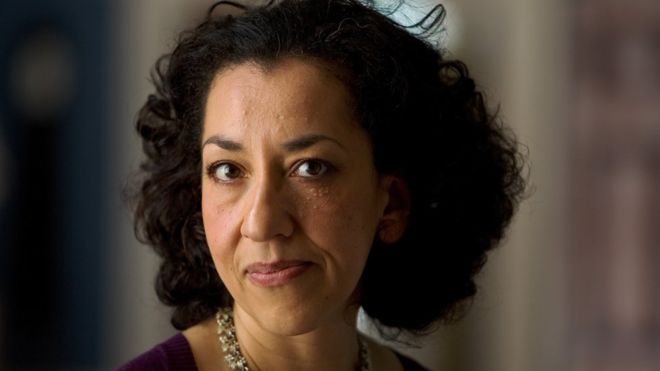
Possible analysis:
Through the I of the writer the notion of identity of an individual, and of a community is at stake. To what extent can the I of the writer enable the reader to be another I? How can such imaginary projections made possible by Small Island be an invitation to reflect upon the notion of cohesion in Great Britain? What can be the role of art in that cohesion-making? All these issues are being tackled here.
A) Andrea Levy: from object to subject
This audio document tells about an object which will be under scrutiny and will be the subject of miscellaneous questions.
The first object brought to the fore is the novel by Andrea levy: Small Island. Based on historical facts, it narrates the arrival of Jamaicans in GB in 1948. However historical it might be, this story is tinged with personal elements: some of the protagonists taking after the novelist's parents. Through the presentation of the novel, the function of the novelist is also enhanced and discussed. Andrea Levy presents her perception of her role as a novelist to "bring [historical generalities] down into human terms to actually look at what it means for people on the ground".
In the process of the interaction host-writer-reader, Andrea Levy and her techniques will be the subject of discussion. Through her narrative choices, she appears as an autonomous and responsible writer: All her narrative techniques given here ( 1st person narratives interweaving four four-person stories, absence of chronological order,...) are intent on enhancing "the adaptations that people have to make in order to live with one another", leading then access to generalities via the intimate.
The reconstruction of reality (the arrival of a Jamaican couple in the late forties, the interaction with the English) is made possible thanks to specific narrative techniques. These techniques participate in fleshing out an artistic object which enables the reader or the writer to reach self-awareness: you (as a writer or reader) will define yourself in relation to it.
From a subject of discussion Andrea Levy will come up as a subject well-aware of the importance of art and the other in the construction of one's identity.
The other has paramount importance in the construction of one's identity, first being different, but not so much in the end
The audio document is interspersed with references to difference, and the possible tensions they entail: Jamaicans vs the English (the possible threat to take over implied in the headlines), the host (male and old) vs the novelist (female, middle-aged) vs the reader (female, young). As a novelist, Andrea Levy tells about her attraction for 1st-person narratives so that characters could "have a distinct voice for them all". Differentiation is also enhanced with the different moments (moments of the story, 1948, and the moment of writing, nowadays). Difference, fragmentation, separation could also be illustrated with the absence of chronology within the story.
Conspicuous as they might first seem to be, all these differences are finally blurred: the connection between the novelist's parents and the protagonists are real, the distinction between reality and fiction is tenuous, all the distinctive voices (host-writer-reader) are brought together within the frame of a national program aired on BBC 4, and the distinction Jamaicans vs the English is finally ruled over by the notion of togetherness. Shared language brings the host, reader and writer together in spite of their different voices (accents).
Art has therefore a unifying power: Small Island gathers reality and fiction, past and present, reader and writer, readers and characters. Characters and writer. Reality is used to flesh out fiction, fiction is used to edify about reality.
Thanks to the I of the writer, Andrea Levy was able to be somebody else, to embody Hortense, to abolish distinctions, and thanks to writing as a game, the reader could enjoy that imaginary interaction, projection.
C) Andrea Levy: desire to reach the other.
Writing as a game is a source of pleasure, which is experienced in the act of writing, reading, telling or listening and could be regarded as the satisfaction of a desire, the one to meet the other.
The creative desire and the subsequent pleasures are made obvious in the document: eAndrea Levy was "very interested", she "really enjoyed" her writing process while the readers "loved" specific elements from the novel and found that things came up "successfully". This desire is also exemplified with the curiosity of the reader coming up with questions as if she wanted to know the secrets (techniques) of a magic trick which enthralled her.
That enthralling desire for the other is shown with the example of the characters whose experiences are interwoven, whose memories are overlapping. Andrea Levy is interested in that "point of contact" between Jamaicans and the English, between the novelist's parents and Gilbert and Hortense, between reality and fiction, between the reader and the writer. Such "points of contact" could be exemplified with the use of "oh" "right", "well" at the beginning of the novelist's and reader's sentences to show their connection, their cohesion, their relation.
Through art, Man expresses his vital impetus (to the other) and imposes his control (identity) turning nature into culture. It is reminiscent of the importance of stories to cement the cohesion of a community, the identity of a nation regardless of its diversity. ( echo to founding myths, like the tapestry of Bayeux or the statue Boudicea and her Daughters in front of Westminster)
In this audio document, Andrea Levy makes it clear that her story brings individuals together as they share common history. Through individual memories, a collective one is accessible, through individual ones, a common voice is heard. Through the imaginary projections it makes possible, the I of the writer becomes the I of the reader. This brings the auditor, host, reader and writer together regardless of their differences. Aired on BBC4, one of the points of contact mentioned by the author, we may consider that with Small Island (another point of contact), a lesson about Great Britain is being given. What is being enhanced here would be the reasons which make a small island like Britain great. The source of unity between two small islands like Jamaica and GB would then be a common wealth to share and flourish. The core of Britishness might thereby be this sense of togetherness, interactions, open-mindedness, empathy and the subsequent "points of contact", which Andrea Levy aims at bringing out through the I of the writer and the game of writing.
Prince Charles appeared on stage at Stratford as part of a stellar cast in Shakespeare Live, a light-hearted tribute to Britain's most famous writer, 400 years to the day after he died.
Prince Charles uttered Shakespeare's immortal line "to be or not to be" on stage, managing to achieve not just every actor's dream, but trump Dame Judi Dench into the bargain.
His short contribution came as part of a complex and witty homage to Shakespeare and his soliloquy from Hamlet known the world over.
Prince Charles appeared alongside Tim Minchin, Benedict Cumberbatch, Harriet Walter, David Tennant, Rory Kinnear, Ian McKellen, Dame Judi, and the RSC's current Hamlet, Paapa Essiedu, all of them giving their own very amusing take on how the line should be said.
It was a fitting finale to a day of celebrations in Stratford that mixed solemnity, pomp, quite a bit of low farce - and royalty. William Shakespeare probably would have approved.
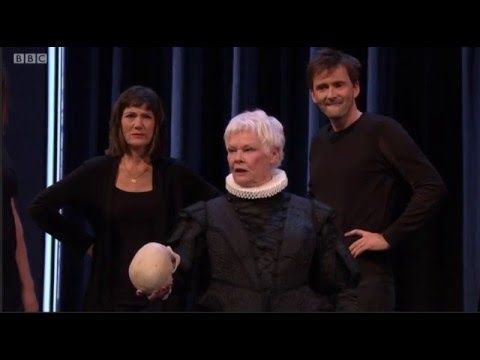
Questions and tasks : Nature of the document? people involved? Topic? Elaborate on people's interactions. What brings them together? Importance of Shakespeare? Humour? Royalty?
